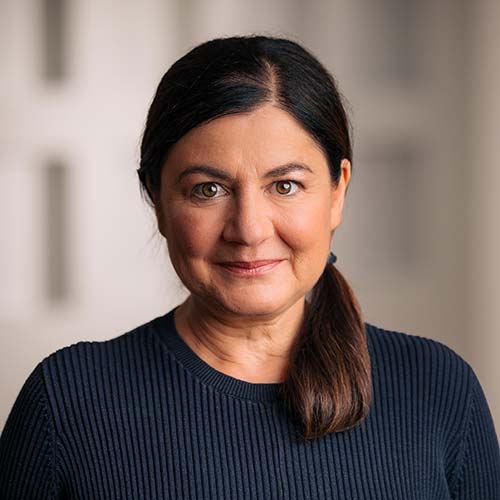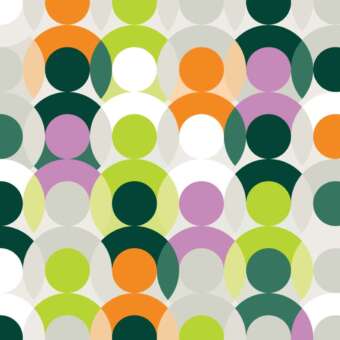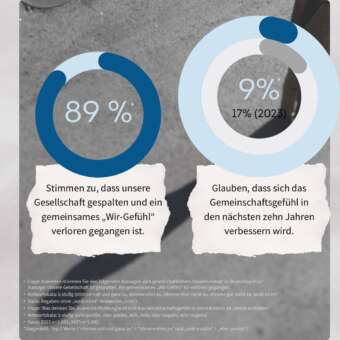Die Deutschen sind übersättigt von Technik und verspüren nur noch wenig Bedürfnis nach neuen Anwendungen. Das gegenwärtige Angebot scheint nicht nur die Alltags-Notwendigkeiten, sondern auch mehr oder weniger alle offensichtlichen Wunsch- und Traumvorstellungen abzudecken. Damit kündigt sich auch aus psychologischer Perspektive ein technologisch-digitaler Epochenwechsel an. Dies ist das zentrale Ergebnis der gemeinsamen Studie „Der Faktor Mensch“ des rheingold Instituts mit Ströer Core. Hier finden Sie eine Aufzeichnung der Studienpräsentation.
Kühnsten Wunschträume der Menschen sind bereits überflügelt
„Durch die aufeinander folgenden Krisen haben wir bemerkt, wie begrenzt die menschliche Allmacht ist“, sagt der Psychologe und Instituts-Leiter Stephan Grünewald. „Der digitale Absolutismus hat uns lange Jahre vorgegaukelt, wir könnten wie beim Smartphone mit einem Fingerwisch die Welt regieren. In unserer jüngsten Studie können wir in dieser Hinsicht eine absolute Ernüchterung feststellen. Wir sind an einem Punkt in der Fortschrittsgeschichte angelangt an dem das technologisch Mögliche selbst die kühnsten Wunschträume der Menschen überflügelt.“
Auf die Frage, wie man sich die Zukunft auf technologisch-digitaler Ebene vorstellt, folgte oft ratloses bis überfordertes Schweigen in den tiefenpsychologischen Interviews. Anstatt freudiger Erwartung, was die technologisch-digitale Zukunft wohl bringen mag, hat sich bei den Deutschen eine Art Überdruss eingestellt.
Vertrauen die Menschen Techniken wie ChatGPT?
„Der Hype rund um ChatGPT hat gezeigt, dass viele Technologien der Zukunft in den letzten Jahren technisch durchaus an Reife zugelegt haben und somit eigentlich für einen breiten Markteintritt bereit sind“, sagt Christian von den Brincken, Geschäftsführer von Ströer Core. Genauso wichtig sei es jedoch, dass die Menschen die Technik auch akzeptierten, ihr vertrauten und sie als sinnvoll betrachten.
Zudem wächst auch das Bewusstsein für den durch digitale Anwendungen verursachten CO2 Ausstoß und Ressourcenverbrauch stetig. Außerdem werden technologische Trends und Anwendungen tendenziell kritischer bewertet, die kommunikativ zu einseitig auf Konsum ausgerichtet sind und jenseits davon in keinen übergreifenden Sinnzusammenhang eingebettet sind. „Technologie um der Technologie willen ist für Menschen kein überzeugendes Argument mehr“, sagt Stephan Grünewald.
Wunsch nach digitaler Reduktion
Das Gefühl der Übersättigung und der Wunsch nach digitaler Reduktion lässt sich gut am Beispiel des Smartphones verdeutlichen: Nutzer:innen sind sich oftmals nur noch über einen Bruchteil der zur Verfügung stehenden Anwendungen bewusst und sind genervt von der schier unüberschaubaren Menge an Apps und der Notwendigkeit, diese einzeln zu downloaden, zu konfigurieren und anzuwenden. Es findet daher ein rigoroses Löschen und Aussortieren von Apps auf dem Smartphone statt – und vor dem Download bzw. beim Verwenden werden Apps viel stärker auf ihre Alltagsrelevanz und ihren tatsächlichen Nutzen hin geprüft.
Wichtige Microtrends für den Bereich Media untersucht
Im Rahmen der Studie sowie der Exploration der 15 wichtigsten Microtrends für den Markt der Medien & Unterhaltung wie zum Beispiel Generative Künstliche Intelligenz oder Augmented Reality hat die Studie vier notwendige psychologische Kern-Bedingungen identifiziert, die entscheidend für die Bereitschaft der Deutschen sind, sich tiefer mit den Trends und Anwendungen auseinanderzusetzen und die Basis für eine grundsätzliche Akzeptanz bilden. Erst so wird es möglich sein, den Alltag der Deutschen mit einer Anwendung zu durchdringen.
Notwendige Bedingungen für die Akzeptanz von Technik:
- Gefühl der souveränen Beherrschbarkeit
- Vertrauen & Sicherheit
- Sinn-Haltigkeit
- Not-Wendigkeit
Die vier Bedingungen können als übergreifendes Prüfraster für die Kompatibilität technologisch-digitaler Trends und Anwendungen mit dem Faktor Mensch verstanden und genutzt werden. Christian von den Brincken sieht in den Studienergebnissen auch eine deutsche Besonderheit: „Viele Länder haben konsequent in ein digitales Mindset investiert: Finnland, Estland, Schweden, Ukraine. Die Skepsis der Deutschen kann sich als Standortnachteil ausbilden. Unsere Studie bietet Verstehensansätze, wie sinnvolle digitale Lösungen Akzeptanz bei den Menschen finden können und wir diese kollektive Blockade auflösen können.“
Studien-Setting mit zweistündigen Tiefeninterviews
Für die Studie wurden 76 Probandinnen und Probanden von 13 bis 65 Jahren in zweistündigen tiefenpsychologischen Interviews befragt. Als Grundlage für die Trends wurde der Trendatlas „Crossroads“ von Ströer Core vorgelegt, ein umfassendes Werk zu den Meta-, Makro- und Mikrotrends am Standort Deutschland, den Ströer 2021 herausgebracht und 2023 grundlegend überarbeitet hat. Darin wurden relevante technologische Trends kuratiert im Hinblick auf deren Reife für den deutschen Markt.




